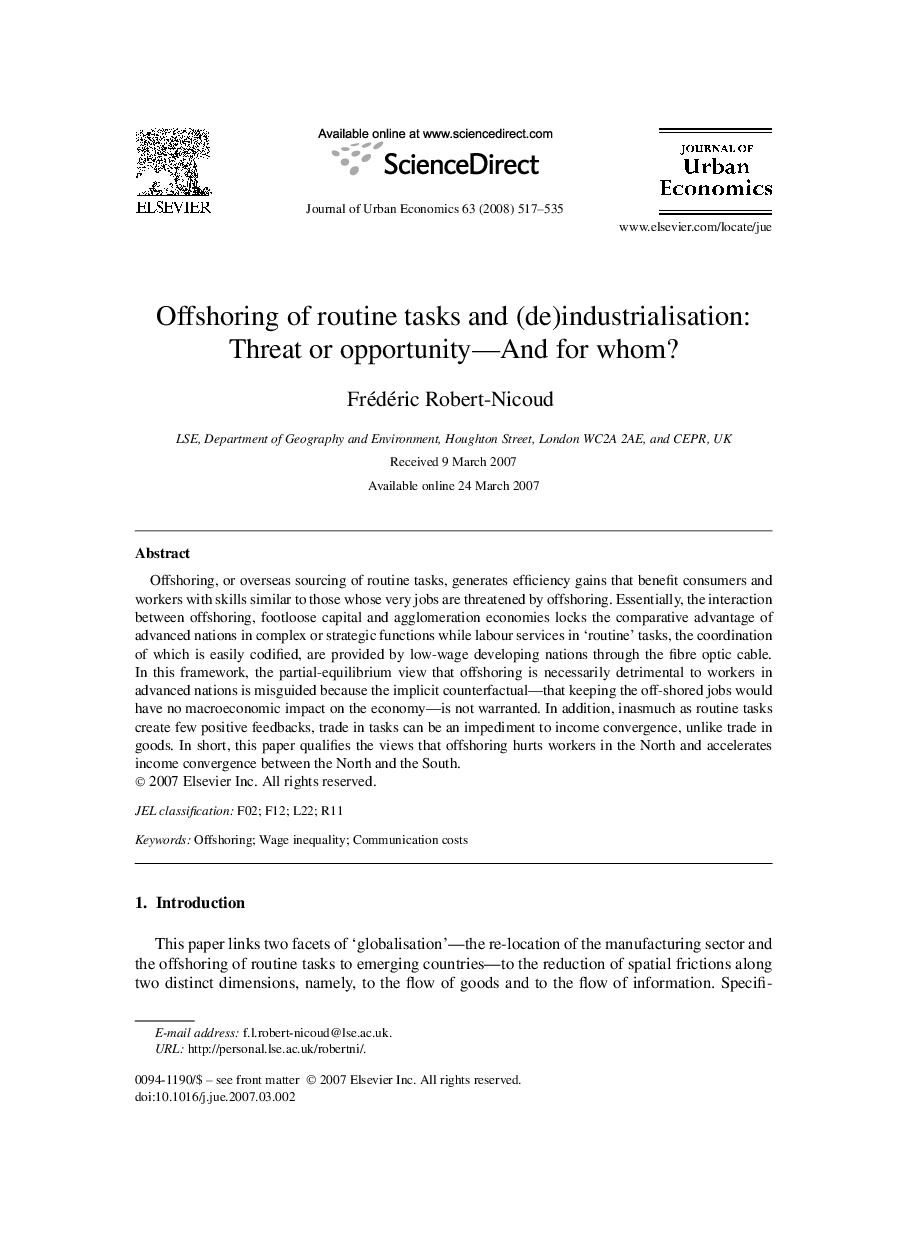| Article ID | Journal | Published Year | Pages | File Type |
|---|---|---|---|---|
| 971405 | Journal of Urban Economics | 2008 | 19 Pages |
Offshoring, or overseas sourcing of routine tasks, generates efficiency gains that benefit consumers and workers with skills similar to those whose very jobs are threatened by offshoring. Essentially, the interaction between offshoring, footloose capital and agglomeration economies locks the comparative advantage of advanced nations in complex or strategic functions while labour services in ‘routine’ tasks, the coordination of which is easily codified, are provided by low-wage developing nations through the fibre optic cable. In this framework, the partial-equilibrium view that offshoring is necessarily detrimental to workers in advanced nations is misguided because the implicit counterfactual—that keeping the off-shored jobs would have no macroeconomic impact on the economy—is not warranted. In addition, inasmuch as routine tasks create few positive feedbacks, trade in tasks can be an impediment to income convergence, unlike trade in goods. In short, this paper qualifies the views that offshoring hurts workers in the North and accelerates income convergence between the North and the South.
